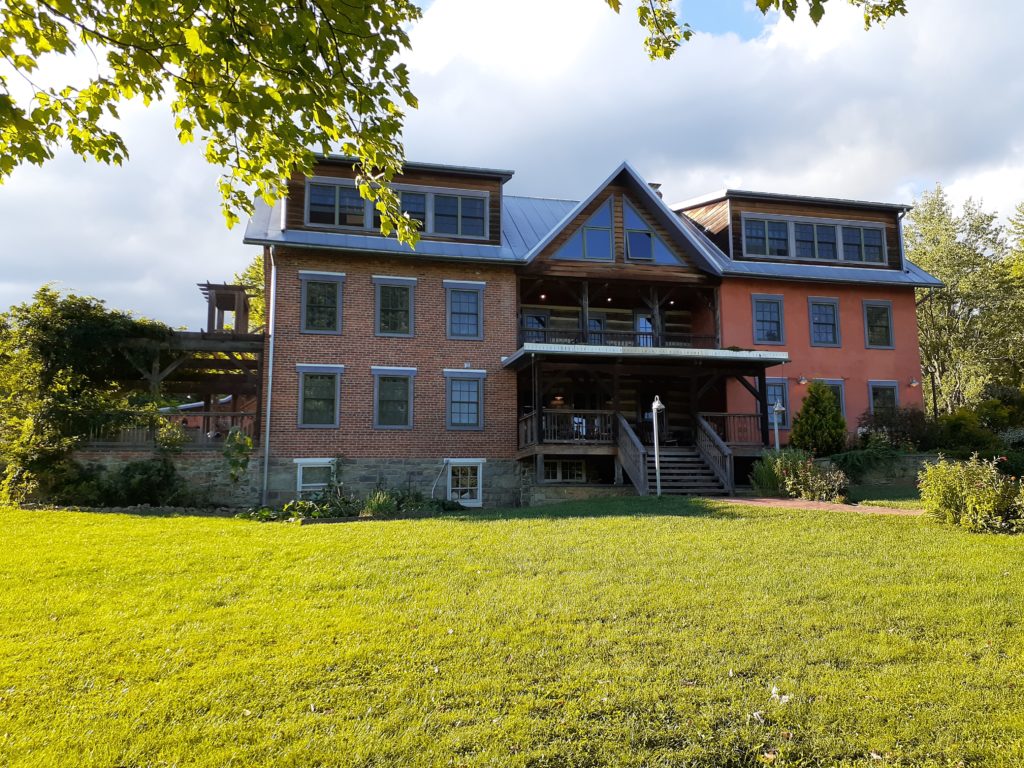Writing with the support of a writing community is better than writing in isolation
Writing retreats changed my image of how a writer works
There are a lot of benefits you can find as a writer when you are willing to try writing with the support of a writing community. Many people seem to think that writing is a creative art done in isolation. Growing up, I had that image of a writer as being an imposing figure with a foot on their desk, tumbler of whiskey in one hand and lit cigarette in the other, as they stare out a window. I imagine some variation of this is common for others when trying to picture “a writer at work.” While the collective conscious is now aware of the dangers of smoking and too much whiskey, I don’t know if the idea of a writer as a lonely creature has necessarily changed in people’s minds all that much.
I’d like to offer the opposite of a writer working in isolation–a writer working in a community.

Okay, so I’m not denying the fact that when it comes time to get words down, there is an individual lift that must take place. But all the other aspects of the process, I’ve discovered (much to my introverted self’s disappointment), involve people. I realized this thanks to two incredible writing retreats I attended in 2022.
What a writing retreat includes, and what you should expect
The week-long writing retreats were organized by three individuals acting as the leaders/instructors of the retreat. (On a personal level, one of the retreats took place in a CASTLE in SCOTLAND with AMAZING FOOD, where one of the leaders is a writer I admire very much. All a dream come true for me.) While there was plenty of time for us writers to sit down and do the writing, I was surprised by how much time we spent together as a group of 30-some individuals. In addition to lively discussions about craft, there were bonfires, a flurry of book recommendations, wild games of Werewolf, long walks to visit resident animals, and a lot of excitement about being with each other on a writing retreat.
All retreats are not created equal, I am sure. And residencies are different than retreats in many ways (the idea behind residency is more for the writer to spend the time as they choose; retreats have a bit more of a schedule/structure). And there is always a risk in attending a retreat that you’ll loathe one of the other attendees, or the instructor won’t be the gleaming goddess you imagined. Maybe they won’t cater to your dietary needs, or you arrive and notice everyone is distinctly different than you. I advise packing anything you might need to gain the most insight (notebooks and pens, books you’ve been meaning to read, etc.), while also packing your biggest reserve of self worth. Because even if so much of these retreat elements align in your favor, sometimes imposter syndrome shows up, completely uninvited, and you’ve got to send it packing.

The amazing community benefits of writing retreats
Now that some of my retreat cautions are out of the way, let’s return to this idea of the power of a writing community I discovered thanks to attending retreats. In all likelihood, the retreat is going to be full of people, just like you, who care a lot about writing their stories. Just like you. Here are four awesome writing-community benefits I’ve discovered on retreats, reinforcing my belief that writing with the support of a writing community is better than writing in isolation:
- Talk about your story and your strengths. Writers are going to be bursting to share their ideas, enthusiasm, heartache, and blockers about writing. The simple act of verbalizing what we are writing and where we are stuck to others can actually help refine our story pitch and pinpoint where we need help. Some of the attendees are great at blurbs and can help you polish your own. Some have superpowers with query letters, or approaches to editing… You feel like you are poaching from everyone, but in reality, you have a writing superpower too, and someone really needs that nugget of knowledge you didn’t realize was gold.
- Learn from leaders. If your retreat has individuals leading seminars/talks, you can bet that you and your cohort will be listening attentively to these people that have been there, done that, and have a book on shelves to prove it. You’ll want to take notes. And there will probably be Q&A that will benefit most everyone in attendance. It might even feel like a lot to learn and know as you scribble down every word, but stick with it. Later, when you need to revisit notes or can’t decipher what you wrote down, you’ll reach out to your community and ask, “Why did I write down ‘mushroom’ with three exclamation marks when we were talking about story structure?” And they will know.
- Workshop & beta reads. A lot of these retreats encourage attendees to swap stories with a smaller subset of the group. If you’re not used to sharing, it might push you a bit our of your comfort zone, but with little risk. (Spoiler: Everyone else is just as nervous to share.) If the leaders are smart, they’ll set up some expectations when workshopping stories to focus the workshop discussions to give writers the information they need to move forward, revise, or get past a blocker. In free moments at the retreat, over a meal or hanging out around the campfire, people will be talking about their stories, and as you share what you’re working on, there will likely be someone who says, “I’d really like to read that! Will you send it to me?” Yes, you just found a beta reader who is excited to see your crazy YA demon graphic novel.
- New besties and the power of the internet. I’m saving the best community perk for last… Both of the writing retreats I attended wisely set up a discord server to allow attendees to get to know each other prior to the week together and has stayed open for attendees to keep in touch. I can’t tell you how many new, incredibly talented, supportive, and inspiring friends I have made. We talk about our writing, share notes and resources, jump in to help each other out when we get stuck, and check in that life outside of writing is going okay, too. We send each other cookies in the mail, give book recommendations, share memes, celebrate each other’s wins, and spam one another with animal pictures when we’ve had a bad day. Thanks to the servers, I have friends in places around the world, such as Tokyo (waves to FoxTrot!), Africa (waves to Teddy!), Italy (waves to Mars!), and even in my own backyard (waves to Abby!). It was the community I didn’t know I needed and the community the retreat never put a price tag on, but delivered as the most valuable writing tool I’ve ever had.
These foundational retreats will be my guidance as I look to develop similar, supportive and collaborative writing events. I’ve seen the power that writing with the support of a writing community can give writers. (You can always check out my Events page to see if there is one coming up!)
As the writing community I’ve been gifted continues to be active and hungry to help each other with writing, I feel extremely lucky to not only have had the opportunity and privilege to attend these retreats, but that these people—my people—are now thriving as writers. Together.
Category:
/